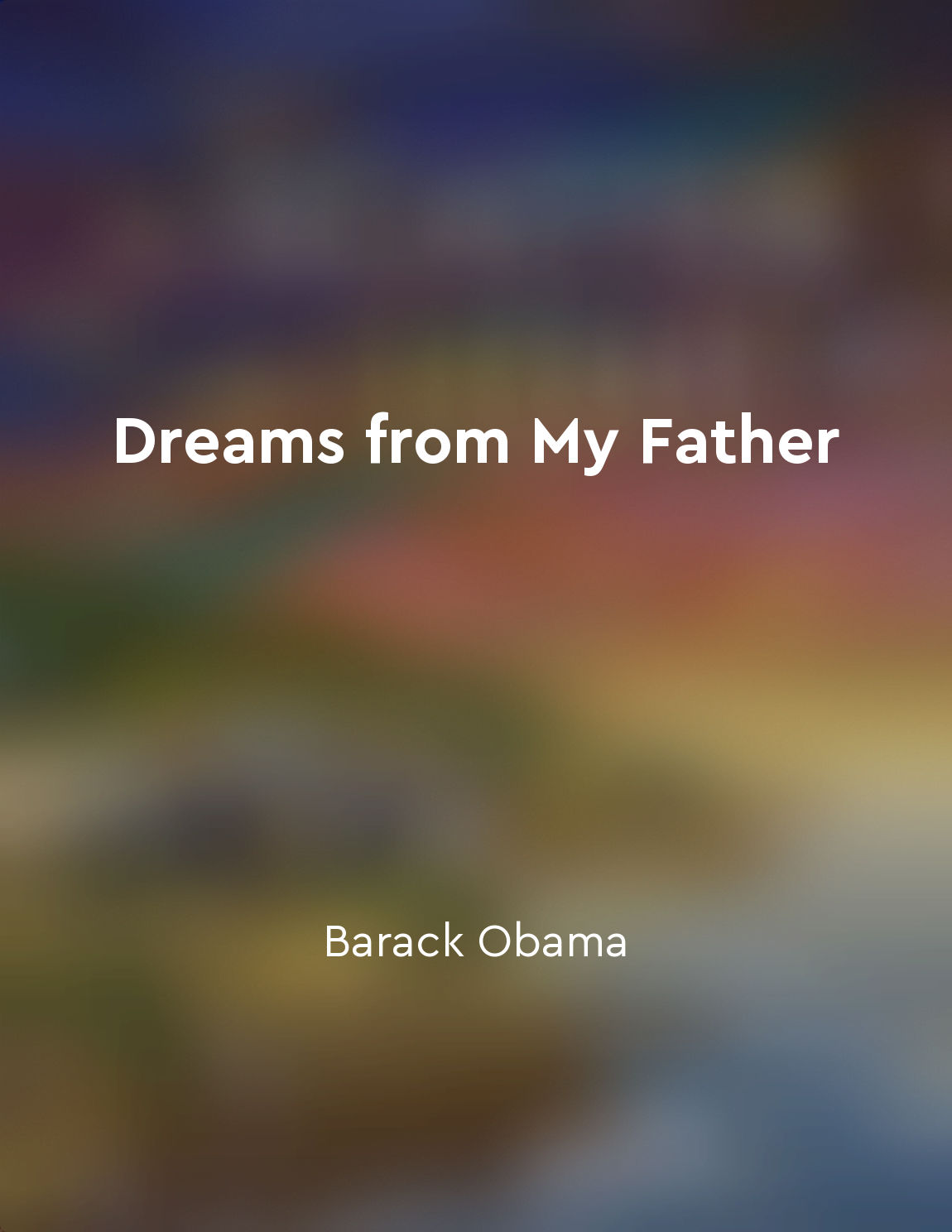Political engagement is a form of social capital from "summary" of Bowling Alone by Robert D. Putnam
Political engagement, in all its myriad forms, represents a fundamental aspect of social capital. Putnam elucidates this point by highlighting the importance of citizens actively participating in the political process, whether it be through voting in elections, engaging in political discussions, or joining advocacy groups. Such activities not only serve to strengthen democratic institutions but also foster a sense of connection and belonging among individuals within a society. By investing time and energy into political engagement, individuals contribute to the overall well-being of their communities and societies. This form of social capital is crucial for maintaining a healthy and vibrant democracy, as it encourages citizens to actively participate in decision-making processes and hold their elected officials accountable. Putnam argues that political engagement is not just a civic duty but also a means of building trust and cooperation among individuals from diverse backgrounds. Furthermore, political engagement can help bridge social divides and foster a sense of solidarity among citizens. Through engaging in political activities, individuals have the opportunity to connect with others who share similar values and beliefs, thereby creating a sense of community and shared purpose. This shared sense of identity can transcend differences and lead to greater social cohesion within a society.- Political engagement serves as a form of social capital that strengthens the bonds between individuals and their communities. By actively participating in the political process, citizens not only contribute to the functioning of democratic institutions but also foster a sense of belonging and connection with their fellow citizens. This form of social capital is essential for building trust, cooperation, and solidarity within societies, ultimately leading to a more vibrant and inclusive democracy.
Similar Posts
The founding settlers of each nation had different motives and beliefs
The founding settlers of each nation that came to inhabit what is now the United States had starkly different motives and belie...
Public opinion can be influenced by emotion
In public opinion, emotion plays a significant role in shaping people's perceptions and beliefs. Emotion has a way of clouding ...
The future of democracy depends on our collective actions and values
In our current political landscape, the future of democracy hangs in the balance. It is not enough to simply rely on the instit...
The decline of these institutions further segregates us into likeminded bubbles
As institutions that once brought diverse groups together decline in influence, our society becomes increasingly fragmented. Wh...
The erosion of civil liberties diminishes the rights of individuals
The erosion of civil liberties is a dangerous trend that threatens the rights of individuals in society. When civil liberties a...

Negotiating dual identities
In my life, I have often found myself straddling two worlds, two identities that seem to constantly pull me in opposite directi...
The rule of law safeguards freedom
The rule of law safeguards freedom by establishing a framework of norms and procedures that limit the arbitrary exercise of pow...
Democracy must be truly participatory
The idea that democracy must be truly participatory goes to the heart of the struggle for a more just and equitable world. It c...
Government should serve the people
The aim of all political association is the preservation of the natural and imprescriptible rights of man. These rights are lib...
Leading with empathy and grace was essential
It was clear to me that in the high-pressure environment of the presidency, where tough decisions had to be made every day and ...

